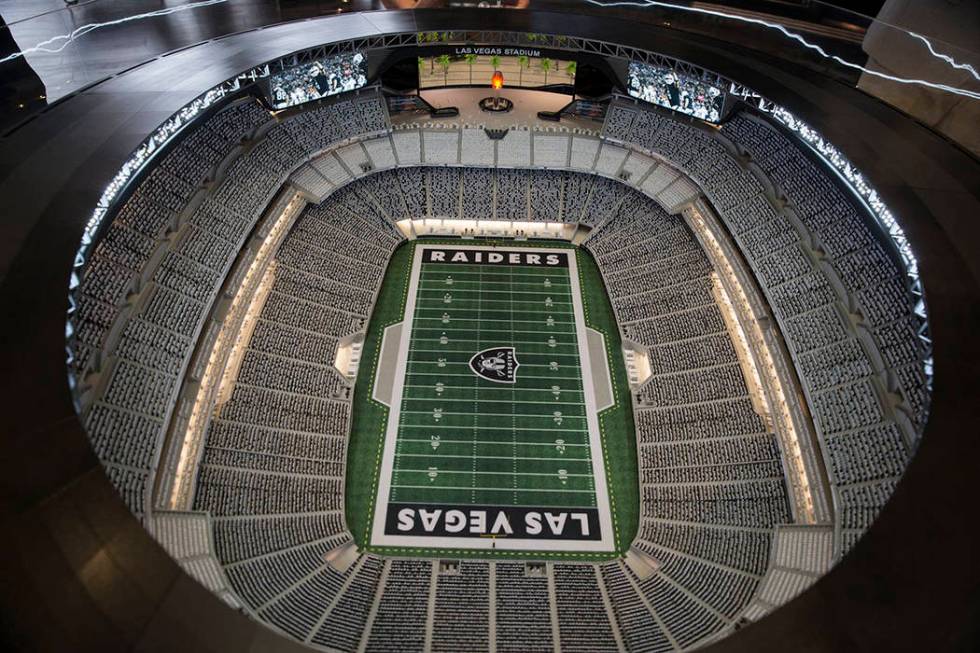Committee explores pros, cons of hosting Super Bowl in Las Vegas

If Southern Nevada were to form an organization to attract marquee sporting events to Las Vegas, it would need to consider whether attracting an event might displace a long-term major existing convention or trade show.
The Southern Nevada Sporting Event Committee on Wednesday conducted a philosophical discussion about the pros and cons of attracting events such as the Super Bowl, the NCAA Men’s Final Four basketball championship and the College Football Playoff National Championship.
The 19-member committee appointed by Gov. Brian Sandoval is gathering information about how to develop an organization whose focus would be bringing major events to Las Vegas after the 65,000-seat Las Vegas stadium is completed in 2020.
Representatives from the National Association of Sports Commissions; the Greater New Orleans Sports Association; Convention, Sports and Leisure International; and Fast Traffic Events and Entertainment addressed the committee about their experiences bringing big events to their communities.
The committee is in the early information-gathering stages as it prepares a report to the governor and the Legislature about the best way to provide events for the new stadium and other Southern Nevada venues. No determinations were reached Wednesday.
Adam Kerns, project manager for CSL International, a division of Dallas-based Legends Hospitality Management, listed some of the requirements the National Football League has for host cities for the Super Bowl.
The league requires a stadium capacity of 70,000 seats; an indoor venue if the local temperature falls below 50 degrees; modern stadium amenities; hotel rooms equal to 35 percent of stadium capacity within a one-hour drive; and cost-free use of the stadium, 35,000 parking spaces and all structures on the stadium grounds for 30 days before and 24 days after the game.
The Las Vegas stadium will have the capability of expanding from 65,000 to 70,000 seats.
The host city also must provide 400,000 square feet for the NFL Tailgate Party; 225,000 square feet for NFL On Location, an ancillary event; an area for the NFL Experience, which draws 150,000 visitors over 10 days; and three golf courses for the NFL Foundation Golf Tournament.
The NFL works with a Super Bowl host committee that in the past has had a budget of $12 million to $50 million. The host committee is responsible for funding and managing events such as the Super Bowl Media party and a $1 million donation to the NFL Foundation Legacy Grant Initiative.
The NFL controls 100 percent of revenue from ticket sales, merchandising and programs, food and beverage, parking, stadium tours and licensing. The NFL gets 50 percent of the stadium suite inventory and their revenue.
The league also requires being exempt from all state, county and city ticket taxes.
Kern said local organizing committees often pay those taxes on behalf of the league.
Las Vegas Mayor Carolyn Goodman, a member of the committee, said she was concerned about whether the presence of the Super Bowl could displace a longtime convention customer.
Kerns clarified that only the stadium would be taken over by the NFL for the Super Bowl for 54 days.
He and Sam Joffray, senior vice president of the Greater New Orleans Sports Association, which has hosted Super Bowl games, said it’s important that an organization be in place to evaluate whether displacing an existing event would be worth hosting an event like the Super Bowl.
Joffray said New Orleans has changed the dates of some Mardi Gras events to accommodate the Super Bowl’s presence.
Contact Richard N. Velotta at rvelotta@reviewjournal.com or 702-477-3893. Follow @RickVelotta on Twitter.